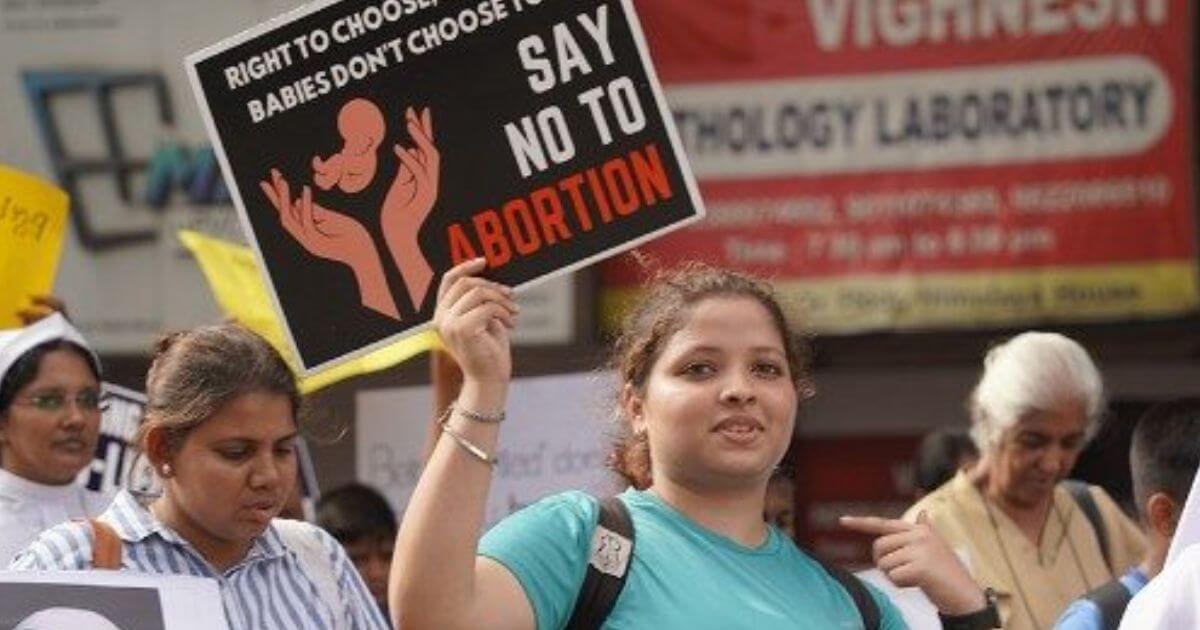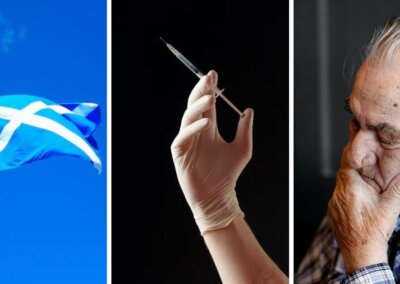Nearly five times as many people gathered for the 2023 March for Life in India compared to the previous year, as close to 1,000 pro-lifers marched to oppose 52 years of legal abortion in India.
Youth activists raise awareness
This summer, the second national March for Life took place in Pune, Maharashtra, India. The 1,000-strong crowd was predominantly made up of people in their teens and twenties who were marching on the 52nd anniversary of the legalisation of abortion in India through the Medical Termination of Pregnancy Act (1971).
Sebastian, a pro-life youth activist from Chennai said “Our country is slowly opening its eyes towards the cruelty of abortion. There have been many initiatives and steps taken by our local pro-life leaders, who travel around the country … creating awareness”.
“We decided to take a bold step last year, to create a greater impact in our country by introducing the first March for Life India, in the 51st year of the legalization of abortion in our country. Two-hundred people gathered to fight for the common cause of protecting life after conception until natural death. We were very excited to see nearly five times as many people turn out for the second march for life this year”.
Abortion practice in India
Pro-abortion group, The Guttmacher Institute, estimates that the lives of 15.6 million unborn babies were ended in India in 2015 through abortion. Despite this extremely high number, pro-life activists say that there is a cultural silence around the issue.
Abortion on the basis of sex (sex-selective abortion) where baby girls are aborted in the womb because they are girls, is a significant issue in parts of India.
A 2018 Indian government report estimated 63 million women were “missing” from the country’s population. This is the result, in large part, of sex-selective abortion.
India has an imbalanced sex ratio with significantly fewer girls being born than boys. The country outlawed sex-selective abortion and prenatal sex detection in 1994 in order to try to prevent a further sex imbalance and the associated ills that often accompany it.
Census data from 2011 showed there were 914 girls to every 1,000 boys for children up to the age of six, but in some northern states that ratio was as low as 850, according to the United Nations Population Fund (UNFPA).
Hopes to grow March for Life until abortion becomes unthinkable
Organisers of the March for Life India, CHARIS, plan to hold the march on the same day next year and to see even greater growth in attendance. The event will take place every year until abortion becomes unthinkable.
Right To Life UK spokesperson, Catherine Robinson, said “It is exciting to see this huge growth in attendance at the March for Life. Momentum is growing around the world to put a stop to laws that permit ending an unborn baby’s life through abortion”.
“The tragic statistics from India show how important this growing pro-life presence is in a country that has such a staggering number of abortions every year. We hope that the March will continue to go from strength to strength and, as organisers say, will lead to abortion becoming unthinkable”.












